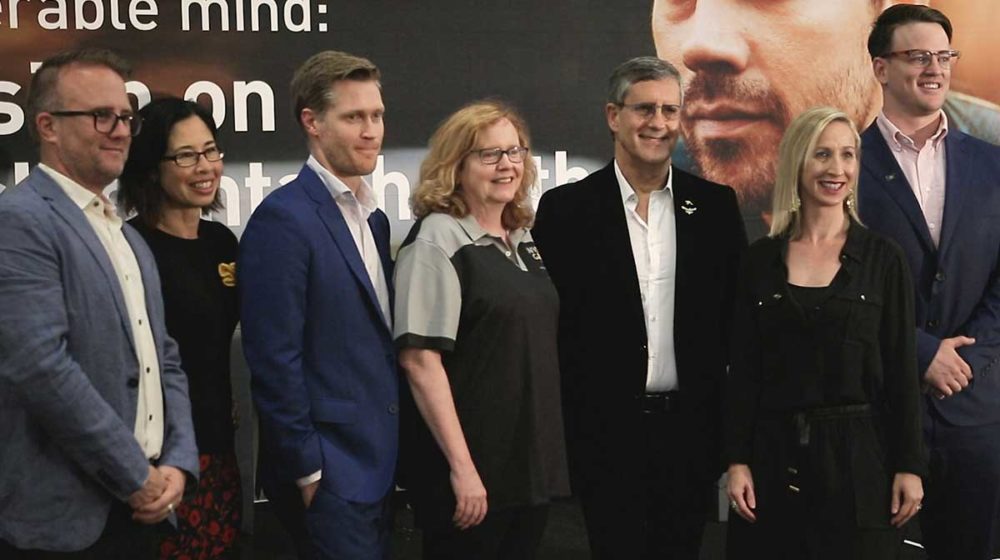The Outreach Program running in conjunction with the sport competition at Invictus Games Sydney 2018 turned its focus Thursday, to the mental health of veterans and the legacy impact from the Games.
Hosted by Medibank, a premier partner of the Invictus Games, the panel discussion on veteran’s mental health entitled: An unconquerable mind, exploring the role that addressing mental health plays in veteran recovery and transition to civilian life.
A cluster of special guest speakers formed a panel, sharing their individual stories, thus giving a personal touch to the crucially important issue of improving mental health for veterans both whilst servicing and through transition.
Whilst the conversations revolved around mental health, Ben Webb, a former Royal Australian Electrical and Mechanical Engineer prefaced the forum saying.
“I would really like the legacy from the Invictus Games to be the continued work on perception that not all veterans are broken. They can go on to achieve amazing things,” said Webb.
This sentiment was certainly endorsed by Rubicon Director, Ed Hill saying that although he knows mental health is a major issue for many he says “we need to change the idea that members of the veteran’s community are victims or somehow broken.”
But for those who do struggle with mental illness, the intention is to deliver positive impacts from forums held throughout the Games.
Those in attendance heard first hand about the emotional toll from Chronic Pain Syndrome from Webb, who was medically discharged in 2013. He found sport helped him a lot, and as a swimmer he won gold at the 2014 Invictus Games in London.
As Centre Manager of the Veterans Centre Webb has found success but still struggles with his constant pain. At one time his life spiraled down to the lowest point of considering ending his life. He told those present that “the most scary thing I’ve ever done was then asking for help. But having done that and taken counselling seriously, I now feel fortunate that I had the support of my wife, found the pathway through pain and pushed myself enough to heal.”
Dr Stephanie Hodson, a mental health advisor with Open Arms and a former member of the military, talked of the guilt and the toll on her mental health as both a woman and a mother. When faced with a pivotal tragic event in her family she learned she needed to have the courage to ask for help.
“It was something I felt very uncomfortable doing,” said Hodson. “There is a stigma attached but I realised then the absolute need to tell people I was not okay. I also learned it took more courage in acknowledging I needed help and allowing myself to be vulnerable rather than being stoic.”
Invictus Games Family and Friends Ambassador Leesa Kwok strongly endorsed Dr Hobson’s advice saying “my own experience of dealing with a husband who has PSTD makes me now admit I am not coping. Every day I rely on and appreciate the help and support for my family.”
She explains that “being honest is hard and serving not only changes the person who is or was in the military but it also changes the whole world and all the extended family and friends.”
All participants in the Forum hope that the really positive impact legacy from these Invictus Games will be targeted mental health for the veteran and their extended family.
However the recurring take out message was, “it is really is okay to ask for help.”
Learn more about the Invictus Games Outreach Program here>>>
AnneMarie White
Invictus Games Sydney 2018
